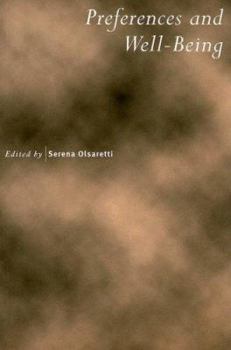Preferences and Well-Being
(Part of the Royal Institute of Philosophy Supplements Series)
Preferences are often thought to be relevant for well-being: respecting preferences, or satisfying them, contributes in some way to making people's lives go well for them. A crucial assumption that accompanies this conviction is that there is a normative standard that allows us to discriminate between preferences that do, and those that do not, contribute to well-being. The papers collected in this volume, written by moral philosophers and philosophers of economics, explore a number of central issues concerning the formulation of such a normative standard. They examine what a defensible account of how preferences should be formed for them to contribute to well-being should look like; whether preferences are subject to requirements of rationality and what reasons we have to prefer certain things over others; and what the significance is, if any, of preferences that are arational or not conducive to well-being.
Format:Paperback
Language:English
ISBN:0521695589
ISBN13:9780521695589
Release Date:October 2006
Publisher:Cambridge University Press
Length:279 Pages
Weight:1.09 lbs.
Dimensions:0.6" x 6.3" x 8.8"
Related Subjects
PhilosophyCustomer Reviews
0 rating





